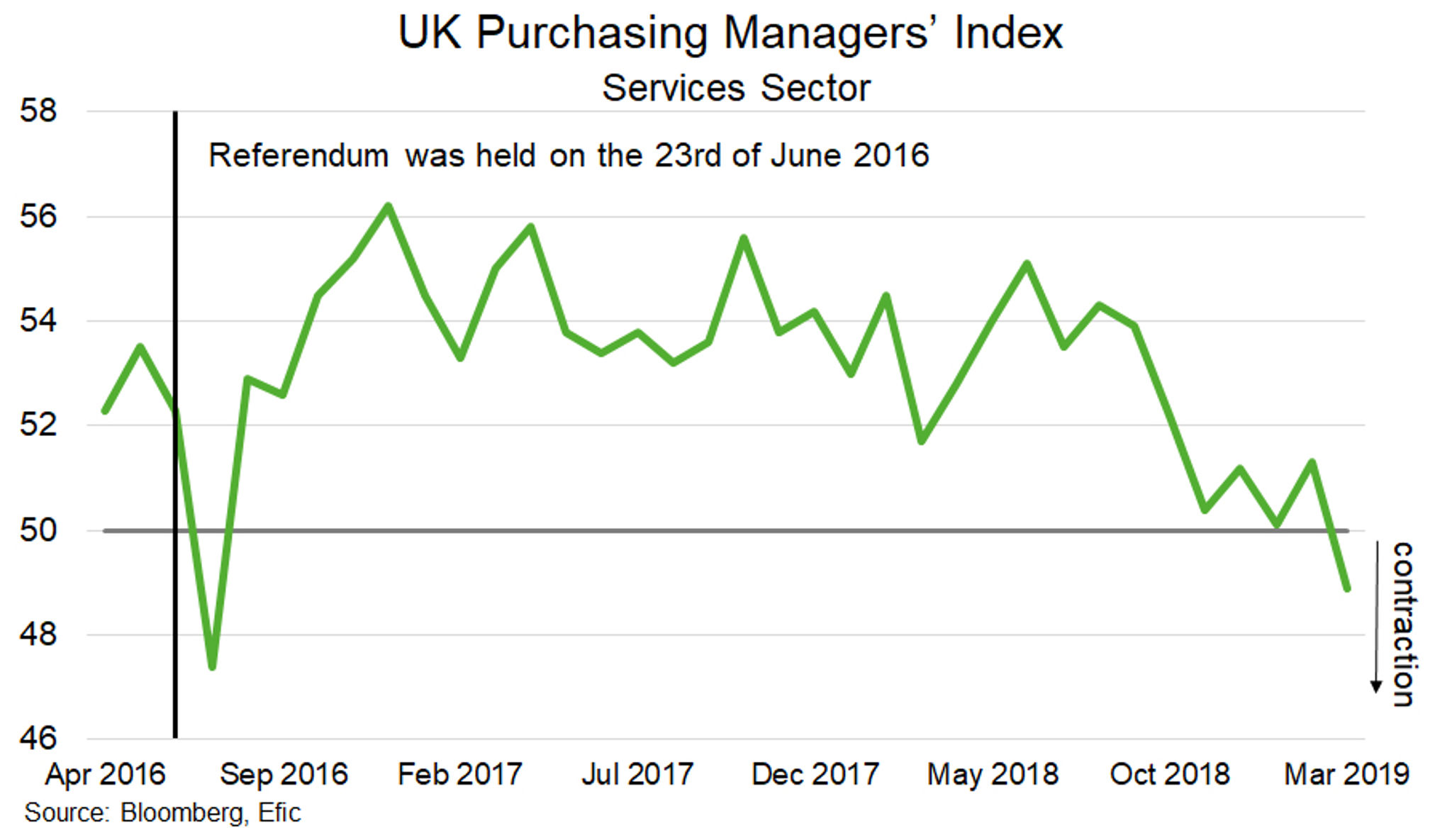The EU has granted the UK another extension to the deadline for Brexit. The original 29 March deadline was first extended to 12 April and has now been pushed out to 31 October. But in return, the UK must now take part in the European Parliament elections in May. If it does not participate, the UK will be forced out of the EU on 1 June.
Despite the extension, a resolution to Brexit remains unclear. Prime Minister Theresa May has initiated negotiations with the opposition (Labour Party) after failing to pass the proposed Brexit terms through both her own party and the UK Parliament. These terms were agreed to by the EU, who are unwilling to make significant changes to the deal. Without support from the crossbench on the existing Brexit agreement, a disorderly exit from the EU cannot be ruled out.
Brexit appears to be taking its toll on the UK economy. The ensuing economic and political uncertainty has already weighed heavily on business investment. There are now signs this is starting to crimp the services sector, which makes up 80% of the economy. The Purchasing Managers’ Index (a leading indicator of economic strength) suggests services output is contracting for the first time since the Brexit referendum (Chart).

